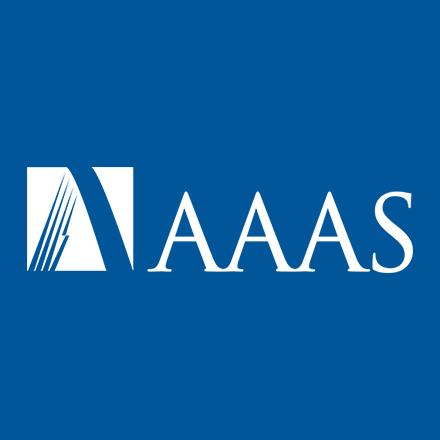The American Association for the Advancement of Science (AAAS) has announced their 2021 Fellows, including three scientists from Lawrence Berkeley National Laboratory (Berkeley Lab) and one affiliate. This lifetime honor, which follows a nomination and review process, recognizes scientists, engineers, and innovators for their distinguished achievements toward the advancement or applications of science.
AAAS, founded in 1848, is the world’s largest general scientific society. The 2021 class includes 564 pioneers from numerous STEM disciplines.
The Berkeley Lab honorees are:
Kristie A. Boering, a faculty scientist in the Climate and Ecosystem Sciences Division at Berkeley Lab and a UC Berkeley professor of chemistry and of earth and planetary science, was recognized “for pioneering work in applying new isotope effects, supported by quantum calculations, to study upper atmospheric chemistry, stratosphere-troposphere mixing, and global biogeochemical cycles.”
Boering studies physical, environmental, and atmospheric chemistry and climate on Earth and other planets. She conducts ground-based experiments and aerial experiments using aircraft and balloons, and computerized simulations of the transport and exchange of gases between the atmosphere and biosphere. Boering was elected to the National Academy of Sciences in 2018.
Hitoshi Murayama, a faculty scientist in the Physics Division at Berkeley Lab and a faculty member in the physics department at UC Berkeley and at the University of Tokyo, was recognized “for his many contributions to our understanding of physics beyond the Standard Model and for his role as founding director of the Kavli Institute for the Physics and Mathematics of the Universe” at the University of Toyko.
Murayama first came to Berkeley Lab in 1993 as a postdoctoral fellow, and has maintained an affiliation with the lab ever since. His work in fundamental particle physics ranges widely, from the quest to understand dark matter and dark energy, to neutrino physics, to the physics underpinning the first fraction of a second of the universe’s existence itself. Murayama is a Fellow of the American Physical Society and a member of the American Academy of Arts and Sciences as well as the Science Council of Japan. He won the 2002 Nishinomiya Yukawa Prize in Theoretical Physics, the 2016 Breakthrough Prize as part of the KamLAND neutrino experiment collaboration, and a 2017 Humboldt Research Award.
Eva Nogales, a professor of biochemistry, biophysics and structural biology at UC Berkeley and a senior faculty scientist in Berkeley Lab’s Molecular Biophysics and Integrated Bioimaging (MBIB) Division, was elected for her work elucidating the molecular function of complex cellular machines by direct visualization of their architecture, functional states, and regulatory interactions.
Nogales is a renowned expert in cryo-electron microscopy technology and image analysis. Her research focuses on regulatory mechanisms underlying gene expression and cytoskeleton self-assembly during cell division, and she has collaborated with scientific teams from around the world. She currently serves as the co-director of UC Berkeley’s Cal-Cryo Facility, and has been a Howard Hughes Medical Institute Investigator since 2000.
Nogales has won numerous research awards, including the Berkeley Lab Director’s Award for Exceptional Science Achievement, and she is a member of the National Academy of Sciences, the American Academy of Arts and Sciences, the American Society for Cell Biology, and the Biophysical Society.
Scott Baker, an affiliate with the Berkeley Lab-run Joint BioEnergy Institute (JBEI), and leader of the Functional and Systems Biology Science Area at Pacific Northwest National Laboratory, was elected for his significant contributions to fungal biotechnology, genomics, and genetics, particularly on metabolite production, enzyme secretion, and cell morphology. Baker currently researches techniques for increasing and improving biomanufacturing of fungal enzymes that break down lignin, a polymer made by plants to give tissue a woody, rigid structure. Being able to reduce lignin to simpler molecules, aromatic acids and phenols, while using minimal energy, is an important step toward the production of low-cost carbon neutral biofuels.
Prior to his work at JBEI, Baker co-led development of the ongoing Fungal Genomics Program at the Joint Genome Institute, which provides fungal genome sequences for the research community. He was elected fellow to the Society for Industrial Microbiology and Biotechnology in 2019, and has served as the Society’s President and on their Board of Directors.
# # #
Founded in 1931 on the belief that the biggest scientific challenges are best addressed by teams, Lawrence Berkeley National Laboratory and its scientists have been recognized with 14 Nobel Prizes. Today, Berkeley Lab researchers develop sustainable energy and environmental solutions, create useful new materials, advance the frontiers of computing, and probe the mysteries of life, matter, and the universe. Scientists from around the world rely on the Lab’s facilities for their own discovery science. Berkeley Lab is a multiprogram national laboratory, managed by the University of California for the U.S. Department of Energy’s Office of Science.
DOE’s Office of Science is the single largest supporter of basic research in the physical sciences in the United States, and is working to address some of the most pressing challenges of our time. For more information, please visit energy.gov/science.

